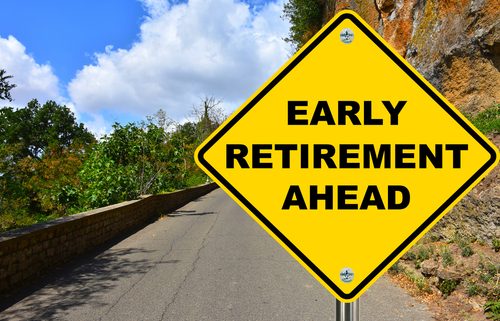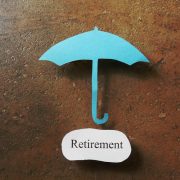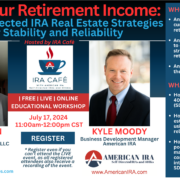FIRE: The Best Cities for Self-Directed Real Estate IRA Investing for Financial Independence and Early Retirement
The term FIRE stands for “financial-independence, retire early.” And it is a realistic goal if you have the discipline.
The term was coined by a Wall Street broker named Joe Dominguez, who worked hard in a very lucrative profession while he was young and saved and invested aggressively. He achieved financial independence early in life – that is, he had accumulated enough to be able to live comfortably on his investments. And so, he retired at age 31.
Well, he didn’t totally retire. He became an author, writing the bestselling 1992 book, “Your Money or Your Life: 9 Steps to Transforming Your Relationship with Money And Achieving Financial Independence,” along with Vicki Robin. Though Vicki Robin had some help from an inheritance.
The concept has become more popular in recent years as Millennials have discovered the idea.
So, what is the FIRE concept?
It’s simple:
- Live simply, on way less than you make.
- Save and invest at least 40-70 percent of your income.
- Purchase a home early, using leverage, and benefit from appreciation, while avoiding paying rent to make someone else wealthy. Build up home equity over time, which you can convert to income later in life.
FIRE advocates estimate that most Americans will achieve financial independence when their assets reach about 30 times their annual income.
Naturally, real estate is an important part of that equation. Nearly all of them credit the importance of homeownership. But successful real estate investing is also a proven long-term wealth generator.
But real estate is also excellent at providing income – a key element in financial independence, since it’s the income piece of the equation that is going to allow people to quit their jobs, says Jim Hitt, CEO of American IRA, LLC. American IRA is a third-party retirement account administrator that focuses on helping investors own real estate and other alternative, non-traditional IRA assets in their retirement accounts.
“Owning your own home is a great start, but it’s tough to convert home equity to income until after you turn 62,” says Jim Hitt. “That’s because that’s the age limit for a HUD reverse mortgage. But investment real estate allows you to generate income much earlier than that.”
According to Jim Hitt, investment real estate provides a unique combination of important benefits:
- Regular rental income.
- Potential for long-term price appreciation.
- Tax advantages, including deductions for depreciation that can help increase cash flow to reinvest. (Properties held in real estate IRAs and other retirement accounts do not qualify for depreciation deductions, but that’s because they are already tax-advantaged!).
- Leverage: Investors can buy an investment property putting up just 25-50% of the purchase price but get 100% of the benefit of future price appreciation and rent increases – minus interest payments on mortgages, of course.
“I’d encourage anyone interested in the FIRE lifestyle to take a look at long-term real estate investment,” says Jim Hitt. “Especially in markets that aren’t yet overpriced compared to rent levels.”
So where should FIRE investors look to find real estate property?
Look for places with low house prices and a reasonable cost of living, compared to income, advises Jim Hitt. Those are the best places to live, but of course you can invest anywhere.
Additionally, look for areas with little or no income tax. If real estate is a significant part of your strategy, you will also want to look for areas with low property taxes, as well.
And, of course, look for areas experiencing substantial economic growth that can support high and growing wages. “That not only benefits you for as long as you’re working – it also helps support increasing rents. That helps you benefit from your investment properties, and will help you reach financial independence that much faster,” says Jim Hitt.
So what cities are the most promising for FIRE investors? New York City’s going to be tough. Maybe Dominguez could make a go of it as a Wall Street trader. But except for a few elites, the ratio of cost of living to average income for most people makes the Big Apple a tough row to hoe, if you are going for early retirement.
According to researchers from Realtor.com, the best places for FIRE aficionados are in our nation’s Heartland and in the South:
- Huntsville, Alabama
- Knoxville, Tennessee
- Dayton, Ohio
- Peoria, Illinois
- Indianapolis, Indiana
- Beaumont, Texas
- Winston-Salem, North Carolina
- Pittsburgh, Pennsylvania
- Palm Bay, Florida
- Colorado Springs, Colorado.
All these towns feature a modest average home sale price relative to average salary levels, and a solid percentage of high-paying jobs.
“These aren’t glamorous Tier 1 gateway cities,” says Jim Hitt, who lives in Asheville, North Carolina. “But these cities represent terrific value, have some great schools, and most importantly, they are excellent places to raise a family. If I were starting out today, and looking to live the FIRE lifestyle, I would start my search in towns like these,” he says.
For more information on Self-Directed Real Estate IRA investing, including how to make Real Estate IRAs work within the context of the FIRE lifestyle, contact American IRA, LLC today at 866-7500-IRA(472), or visit us online at www.americanira.com.









